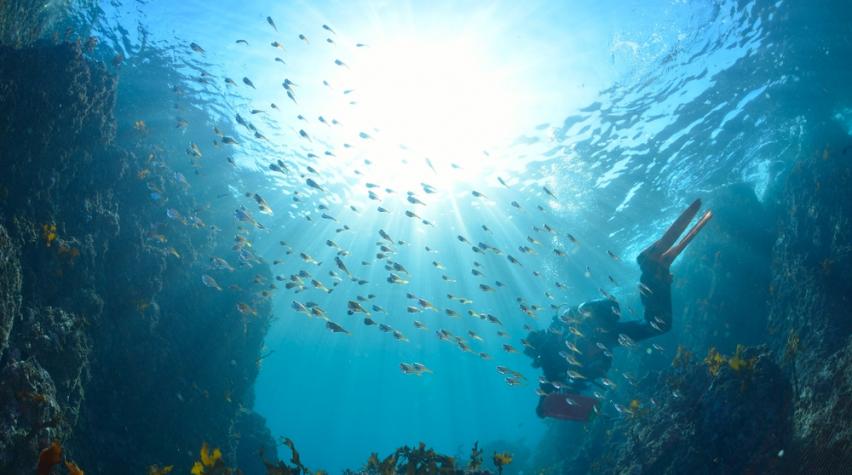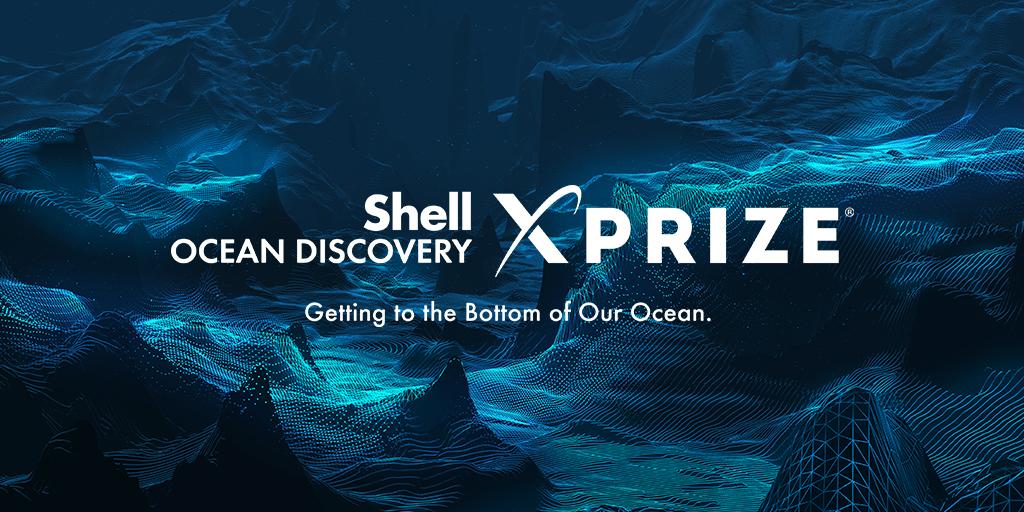
By Dr. Jyotika Virmani
Over two-thirds of our planet is covered by ocean and it plays a critical role in our lives by providing over 50% of the oxygen we breath and controlling our weather and climate. Beyond that, the sea also contains numerous chemical compounds that can provide essential medicines. For example, AZT, a compound used to fight the AIDS virus, is found in a Caribbean sponge. Another aquatic organism, the bryozoan Bugula neritina, yields a compound being tested as a cancer drug. However, despite its importance to our well-being, the ocean remains an unknown entity and the last undiscovered frontier on our planet.
Goal is automated exploration
To address this, in December 2015, XPRIZE launched the $7 Million Shell Ocean Discovery XPRIZE, a global competition challenging teams to develop deep-sea underwater robots for autonomous, fast and high-resolution ocean exploration. Embedded within this is a $1 million chemical engineering challenge. A $1 million National Oceanic and Atmospheric Administration (NOAA) Bonus Prize incentivizes teams to develop pioneering technologies to autonomously detect the source of chemical and biological signals underwater. Teams who opt to compete for the NOAA Bonus Prize during the competition will have to autonomously detect the source of at least one of the following five chemical/biological signals: rhodamine dye, sulphur, salt, sodium hydroxide, hydrochloric acid.

Rhodamine dye, a standard tracer used in oceanography, can be detected using multiple techniques, including fluorometric techniques. Sulphur is a proxy for a biological signal and can be found as marine life decays on the sea floor or in hydrothermal vents. The extremely high salinity source is also a proxy for underwater hydrothermal vents, which provide numerous chemicals that fuel highly biologically productive and complex ecosystems. Sodium hydroxide and hydrochloric acid are indicators of ocean acidity, and an opportunity for teams to use pH-sensing technology. This builds upon the previous ocean XPRIZE – the Wendy Schmidt Ocean Health XPRIZE, a $2 million competition incentivizing the development of accurate, durable, and affordable pH sensors to detect the changing chemistry of the deep sea and along coastal waters. As climate changes, carbon dioxide from the atmosphere is being absorbed into the ocean and adversely affecting marine life. The Wendy Schmidt Ocean Health XPRIZE, awarded in July 2015, now give us the tools needed to monitor ocean acidification.
Stages of the competition
The first round of testing for the NOAA Bonus Prize will take place during the semi-finals of the Shell Ocean Discovery XPRIZE, during the summer of 2017. Teams from all countries will have an opportunity to test their autonomous underwater “smart sniffers” in the real-world competition test area. They will collect data and receive technology performance evaluations from an independent judging panel. Teams who qualify for the final round will have a year to make modifications to their competition entries based on the feedback they receive. Due to the nature of the prize, only US teams are eligible to compete for the prize purse so, between the first round of testing and the final round, non-US teams with promising technologies have an opportunity to merge with eligible US teams. The final round of the competition will take place during the summer of 2018, following which the judges will determine the winner of the $1 million NOAA Bonus Prize.
The NOAA Bonus Prize will incentivize the detection of anomalies in the water column that indicate the presence of ocean life or another significant chemical feature of the ocean environment. Not only must the technology detect the signal, but it must also navigate and find the source. In the future, these capabilities will aid in the rapid detection of airplanes or vessels lost at sea – all of which carry a chemical signal – as well as in detecting sources of pollution, enabling rapid response to leaks and spills, identifying methane seeps and hydrothermal vents, which indicate areas of high biological, chemical, and geological productivity, and tracking marine life for scientific research and conservation efforts.
The success of this prize will allow us to fully explore and map the deep-sea, and uncover our planets greatest wonder and resource for the benefit of humanity.
Dr. Jyotika Virmani is a senior director for energy and environment at the XPRIZE Foundation and leads the Shell Ocean Discovery XPRIZE. With over a decade of professional experience in oceanography, Dr. Virmani has a Ph.D. in Physical Oceanography and an M.S. in Atmospheric Science.


